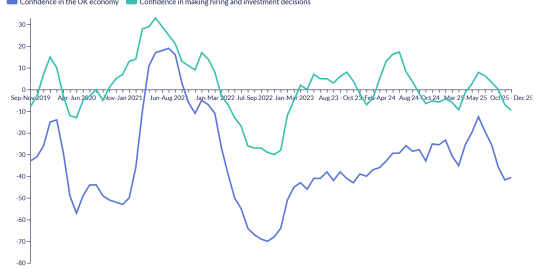Last week saw thousands of students across the UK nervously tearing open envelopes to reveal their A-level exam results; with thousands more receiving their GCSE results today.
However, with an estimated 6 students trying for every spare university space
It is not uncommon to opt away from further education for one reason or another; in todayís popular culture, figures such as Sir Alan Sugar and Duncan Bannatyne are both self made multi-millionaires who decided they wouldnít further their education and instead joined the working world straight from school.
For anyone who has decided against further education, Susan Yallop, a Director of Adecco Group UK and Ireland offers the following advice for anyone assessing their options other than further education.
Consider your capabilities
Even without degree qualifications, everyone has certain skills, assets and personal interests which they already excel in. Whether youíre a people person, a natural leader, a creative thinker or good at working with people of different age groups or cultures, your own personality should help to shape your decision when choosing the industry or kind of work that youíd like to pursue. Get some feedback from your peers, family and teachers to see what they think your strengths are, and then consider industries or jobs where these qualities are useful.
Experience things first hand
If there is an industry which interests you but you are under-qualified, try to gain some relevant work experience. Either volunteer your services or apply for work in a related field. Demonstrating to future employers that you have thought about your options and showing a genuine interest in their sector will strengthen your position as a potential candidate for employment. Temporary work experience or short term contracts will help build your expertise in the industry, and voluntary experience shows willing and passion.
Stay active
It can often be difficult to decide on a career path straight from school; but, itís important to not waste your time. Even if youíre unsure of the career path that youíd like to follow, try to gain some work experience that can offer you transferable skills which you can then use in future roles. Areas such as time management, liaising with clients and general office administration are all invaluable skills to develop build up, which can later be transferred into new roles. Consider vocational qualifications or returning to college in your free time to improve on useful skills such as IT or languages.
Concentrate on your skills rather than education
When writing a CV soon after leaving school, it can be difficult to make yourself stand out with a limited career history or qualifications. Try to focus on your skills and the qualities you have by positioning these towards the top of your CV and expanding on your strengths which may transfer into the workplace. Donít ignore your existing qualifications; instead position them on your CV with less emphasis than your personal qualities. Sometimes it is suitable to have more than one CV because you may be applying for more than one industry sector. Make sure that you tailor make the CVs according the industry and the jobs you are applying for.
Cover letters for context
When applying for a role of any kind, whether work experience, temporary work or full-time, always accompany applications and CVs with a personalised cover letter. It is very difficult to give an employer a clear perspective of why you want to work for them and why they should choose you just from a standalone CV. A cover letter is a great way for you to explain why youíre the perfect candidate, what qualities you have and what you would bring to the role youíre applying for. It will also go a long way to emphasising the passion you have for securing the specific job you have applied for.
Susan Yallop commented,
ìNot going to university should not be considered the end of the world. Many people who havenít been to university go on to be extremely successful business people and are at no disadvantage to their peers and colleagues. Although the jobs market is currently extremely competitive, the key is to be proactive.
ìSome employers may be hesitant about candidates without tangible qualifications; therefore itís essential that anyone who has opted not to go to university makes themselves attractive in other ways. Relevant work experience, training and a genuine interest in a specific industry can speak volumes about a candidates desire to secure a role. While it can be an invaluable experience for many, university isnít necessarily for everyone and people who have recently left school can still be confident on embarking on a successful career.î
ìWe donít need no educationî – what to do if further education is not the right option for you

Adecco offers advice to students considering entering the workplace




